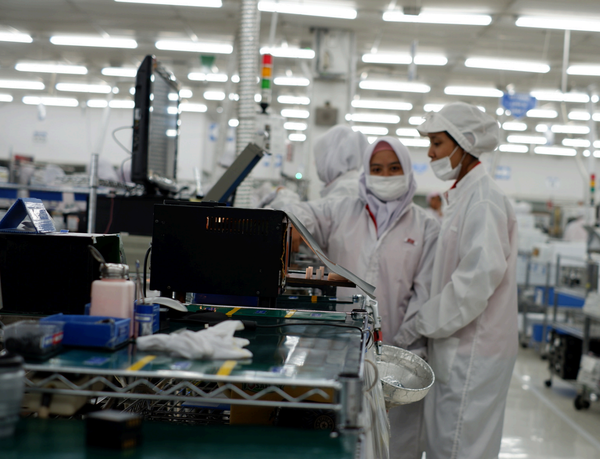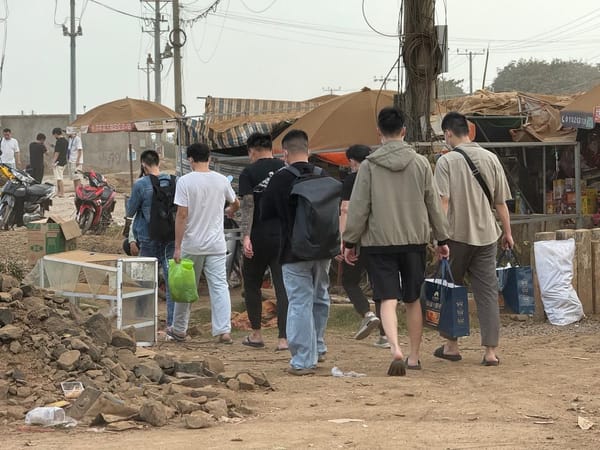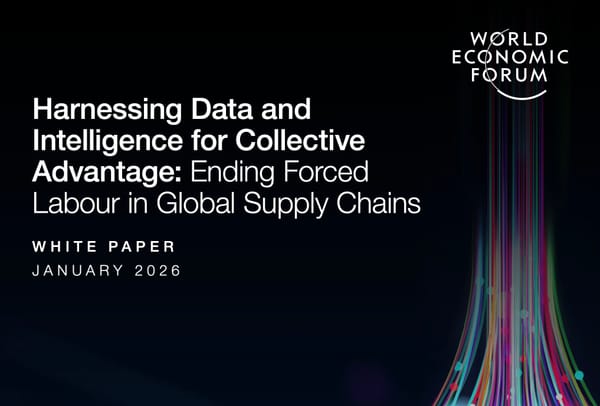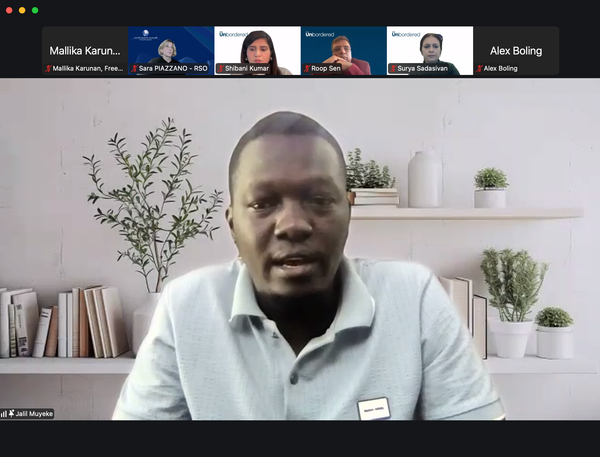European anti-trafficking experts emphasize the need for joint action
This year’s Europe Regional Freedom from Slavery Forum explores priorities for effective coordination, a report highlights the abuse of Kenyan domestic workers in Saudi Arabia, and a UK job ban forces female asylum seekers into sex work.
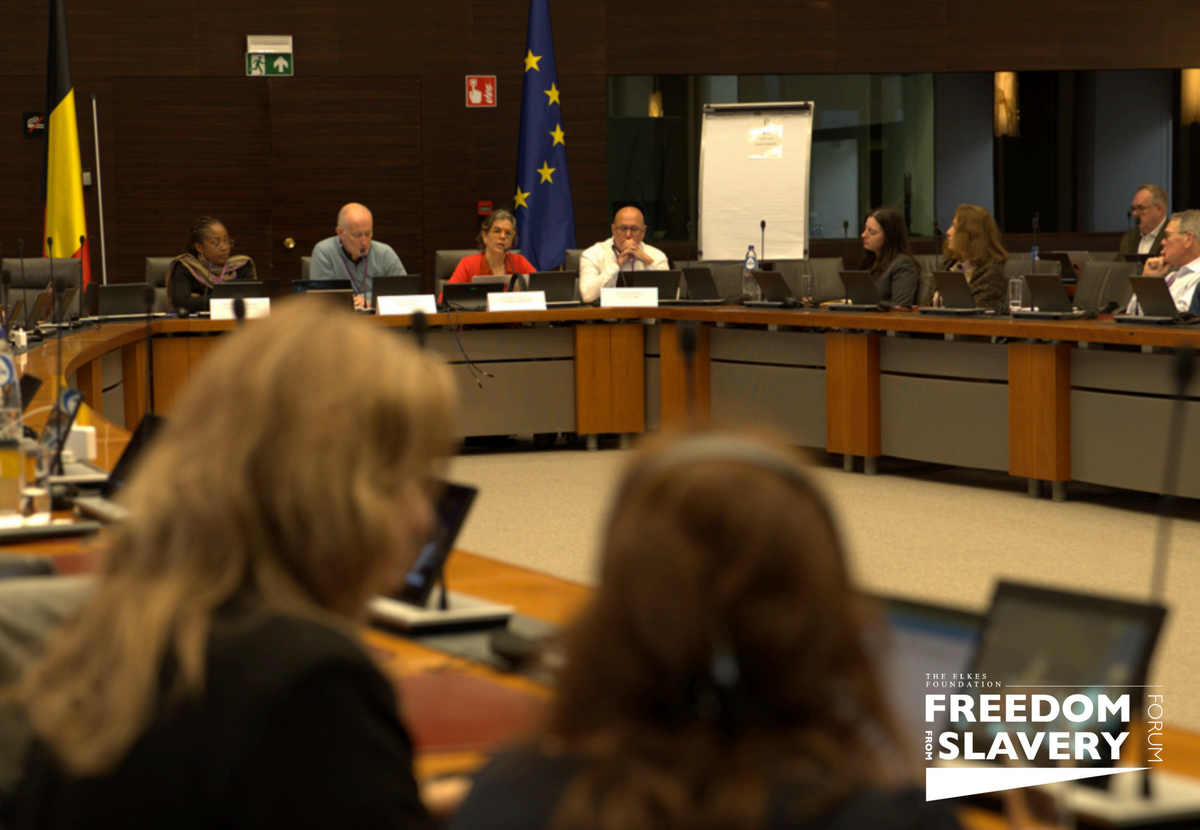
The 2025 Europe Regional Freedom from Slavery Forum took place in Brussels last week, bringing together stakeholders to drive meaningful change, share promising approaches to tackling forced labour, human trafficking, and child labour, and identify priorities for effective coordination, collaboration, mobilization and engagement. The event was organized by Free the Slaves, in partnership with La Strada International, Anti-Slavery International and ASTRA, with support from the governments of Belgium, France and the United Kingdom.
While this annual event primarily focuses on the European context, organizers emphasized that these issues cannot be addressed in isolation from the global landscape; Europe’s influence, particularly through its international business operations and legislative reach, means regional decisions often have worldwide implications. For example, many European companies operate in supply chains across the globe, and laws enacted by the EU will affect value chains that often extend into the Global South.
To harmonize efforts, stakeholders, including governments, EU agencies, businesses, survivors, civil society organizations, employer associations and academics, must come together to exchange knowledge, share best practice, identify service and knowledge gaps, and commit to sustained progress through collective mobilization, engagement, partnership and collaboration, the organizers said.
Over the course of three days, participants attended keynote speeches, panel discussions and workshops examining root causes, emerging trends and potential solutions. The first day focused on understanding forced and child labour in Europe, and looked at regulatory frameworks, survivor engagement and enforcement challenges. Discussions on the second day explored legislative and industry issues, including topics such as forced labour in the textile industry, the Europe Pathfinder Framework, and misconceptions surrounding mandatory human rights due diligence. On the final day, the forum addressed sector-specific concerns, beginning with a keynote on reframing modern slavery, followed by discussions on forced labour in agriculture and coordination across global supply chains.
A keynote address by Dutch politician Samira Rafaela underscored the urgency of implementing the EU Forced Labour Regulation and emphasized the need for international collaboration, robust remediation mechanisms, and a central database to promote transparency and support ethical consumer decisions, while Fabian Bonertz of the Organization for Security and Co-operation in Europe (OSCE) stressed the importance of bridging the gap between child trafficking prevention and traditional child protection frameworks.
A panel on “Strategies for Coordinating Efforts on Forced and Child Labor” underlined the importance of civil society collaboration, with speakers calling for systemic change and the confronting of power imbalances in sourcing practices. Another session, “Understanding the Current Landscape on Forced Labor, Child Labor and the Pathfinder Framework”, examined challenges in supply chain traceability, the exploitation of migrant workers, the need for adequately resourced labour inspections, the role of multi-stakeholder collaboration, and the importance of effective regulation.
“Engaging Survivors in Addressing Forced Labor and Child Labor”, moderated by Joanna Ewart-James of Freedom United, highlighted the critical contributions of lived experience experts and the need for stable funding to ensure appropriate survivor support, while “Strategies for Sustaining the Current Funding Landscape to Address Forced Labor, Child Labor, and Trafficking in Persons”, moderated by Suzanne Hoff of La Strada International, discussed the urgent need for increased collaboration, diversified funding, corporate accountability, mental health support, and equitable access for non-governmental organizations.
The forum concluded with a session outlining next steps, reaffirming that joint action, systemic solutions, and sustainable financing are essential for effectively combating all forms of exploitation.
Here’s a roundup of other noteworthy news and initiatives:
Amnesty Kenya’s new report, Locked In, Left Out, documents the harrowing abuses endured by Kenyan domestic workers in Saudi Arabia, including forced labour, sexual violence, and severe exploitation under the kafala system. Based on interviews with 72 women, the report highlights systemic failures that leave workers trapped in abusive conditions, with little to no legal protection or recourse.
The Trump administration is reportedly planning to deport migrants to Libya, a country mired in conflict and notorious for human rights abuses in its detention centers, prompting outrage from advocates and legal challenges. Critics argue the move would violate existing court rulings and put vulnerable migrants, including those from Mexico and Asia, at serious risk of mistreatment or torture.
A new report by Women for Refugee Women has found that the UK’s work ban for asylum seekers is forcing 10 per cent of female asylum seekers into sex work and trapping many others in abusive relationships due to extreme poverty. Based on interviews with 117 women, the research highlights the ways in which the ban leaves women unable to afford essentials, increases vulnerability to exploitation, and significantly harms their mental health.
Meanwhile, the UK foreign secretary has proposed a global conference as part of “a long overdue conversation about the future architecture of aid”. UK Foreign Office officials said the proposal reflected a UK view that, since aid cuts were not reversible in the foreseeable future, a discussion on priorities was required. Bond, the UK network for international development organizations, noted that, “any potential discussions must involve the voices of lower-middle income countries, including local civil society actors who understand the specific needs and requirements of their communities.”
This blog article examines the ways in which human traffickers leverage the anonymity and global reach of cryptocurrencies to conduct illicit transactions and obscure financial trails. It highlights a significant increase in suspicious activity reports related to cryptocurrency and human trafficking, noting that more than 1,800 unique Bitcoin wallet addresses were linked to suspected trafficking offenses between 2020 and 2021.
Episode 16 of the Conversations on Modern Slavery podcast discusses the “Ethical Anti-Trafficking Practices Guide for Faith-Based Organizations”. The episode features contributions from representatives of Salvation Army Indonesia, Dark Bali, Project SUMA (Bolivia), and Free the Slaves, outlining the development of practical guidelines for faith-based anti-trafficking efforts.
Join a webinar tomorrow, 14 May, exploring why many potential victims of modern slavery in the UK are declining support through the National Referral Mechanism (NRM). Led by Laura Sawyer of Nottingham Rights Lab, the session will share new research insights and explore practical ways to strengthen victim engagement and access to support.

